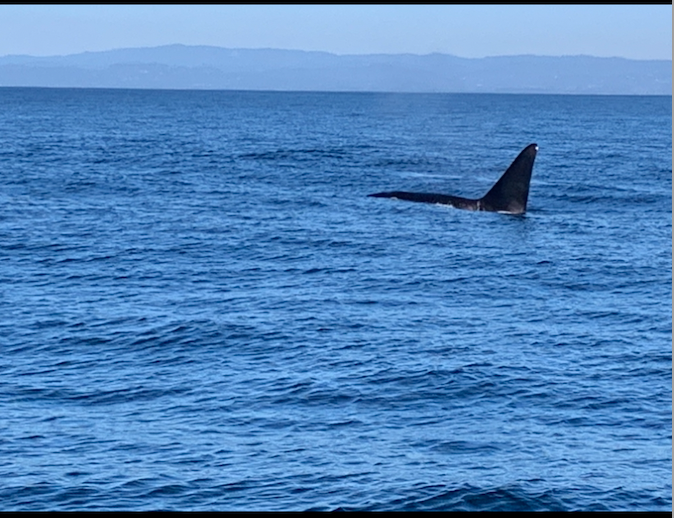The pious and the devout are no longer strangers to me. This conclusion is perhaps a non-traditional (and, if you’re still really invested in the whole “faith or science” debate, disheartening) one to have gleaned from writing about science, but this is the truth that I am finding — I have to believe there is something I can see and say for me to see and say something. It’s just like feeling beautiful or falling in love — you must believe there is beauty in order for it to reveal itself. À la the poet and songwriter Daniel Johnston, “true love will find you in the end, but only if you’re looking, will it find you.”
The first scientific concept that moved me was bioluminescence, the production and emission of light by a living organism. Like many, I found it as a high school biology student, in the corner of a textbook page. Even so, my obsession soon blossomed into internet wormholes, articles and YouTube videos (or if you prefer their pseudo-intellectualized name, “video essays”).
But it was more than seeing light shine underwater, more than the biological basis for glow-in-the-dark Halloween costumes, more than an organism setting itself aflame that fascinated me. I was drawn to how the process occurred — the factor that bioluminescence in organisms is not the organism at all, but instead the billions of bacteria living within it. The organism’s beauty is made by its natural processes inside, that which happens every day. That which is ordinary.
I have always found ordinary things to be quite beautiful. Moreover, I am drawn to the link between the two — the ordinary and the beautiful, how they depend on each other. There are so many beautiful, ordinary things in the world, small and large: reasons, names, cereals, hopes, types of fish, ways to love and be loved. The list is as endless as the ocean is blue.
The more life I experience, the further time pushes forward, the more I’m turning back, reflecting on how what has happened will shape what will be. Like a whale breaching to release parasites from its tail, noticing these things is a necessary act of survival. If for no other reason, I ought to know what moves me in order to keep moving at all. The purpose of my interest in this all, I should clarify, is not to find answers — I am no psychologist, thank God — but instead to ask questions. I’m less interested in making meaning of things and more so noticing the patterns, both the symmetry and asymmetry.
At the end of winter quarter, I had the opportunity to go whale watching off the coast of Monterey Bay. Four hours on the water, sandwiched between two mammoth blues, the sky and the ocean searching for the sight of a raised tail or fin (or anything indicating a whale, that ocean mammoth). Basically, it was me and a bunch of other ocean-tourists trying to make a miracle happen on the Pacific. The guides tried to brace our expectations, told us to expect one, maybe two sightings. Somehow, there were five or six. And not only whales, but an orca, too, which made even the guides pull out their cameras.
I am learning to view the creative process and scientific method interchangeably: observe, record, recall and let the rest work its magic. Observation is the start of a full life, in art and beyond. Even gratitude comes tinged with the judgment of joy. If I can simply notice, and nothing else, when writing on the page, then the images and observations will speak for themselves. It is, to me, a matter of making myself porous to the world, letting myself remain open to the environment affecting me. Or at least, allowing the possibility of such a thing.
Faith is fragile, yet I am finding there is faith in everything. In every text, in every laboratory, in every corner of the natural world. There’s faith in waking up to collect water samples from an ocean larger and older than human history, faith in putting pen to page to tell a story no one yet has heard; faith in spending years noting how the rain falls the way it falls, and faith in spending years wondering why; faith in that, despite everything, what you observe and what you say will make some change, will mean anything at all.
As we rode back into the harbor, my phone rang in my pocket. My mother. I answered, but chose not to FaceTime when I tell her all about what I saw because, as she quipped, I’d have to see it to believe it. But that is not all, Mother. We must also believe it in order to see it.
